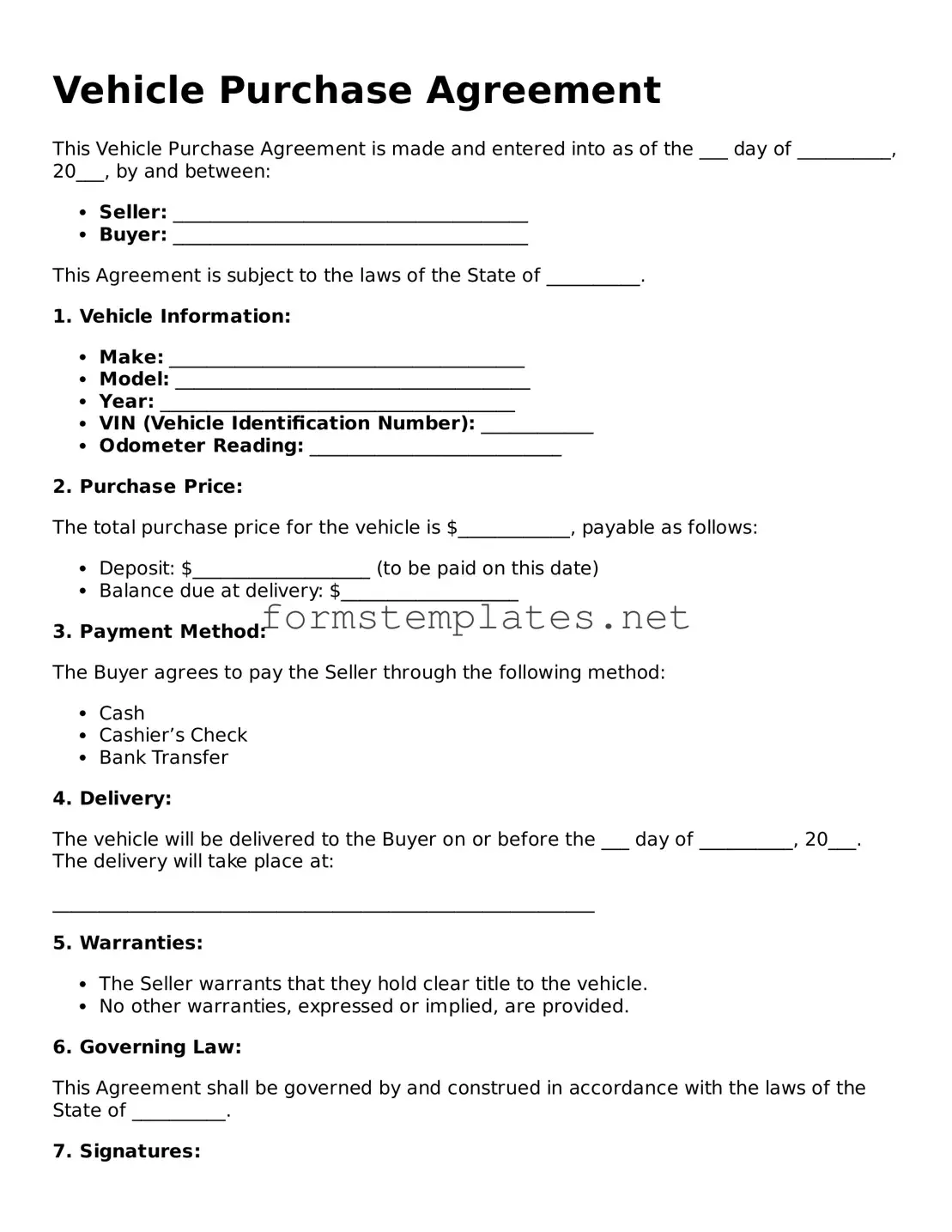Attorney-Verified Vehicle Purchase Agreement Form
The Vehicle Purchase Agreement form is a legal document that outlines the terms and conditions of a vehicle sale between a buyer and a seller. This agreement serves to protect the interests of both parties by detailing the specifics of the transaction, including the purchase price, vehicle description, and any warranties or conditions. Understanding this form is essential for anyone involved in buying or selling a vehicle.
Open Editor Now

Attorney-Verified Vehicle Purchase Agreement Form
Open Editor Now

Open Editor Now
or
⇓ PDF Form
Your form still needs attention
Finalize Vehicle Purchase Agreement online — simple edits, saving, and download.